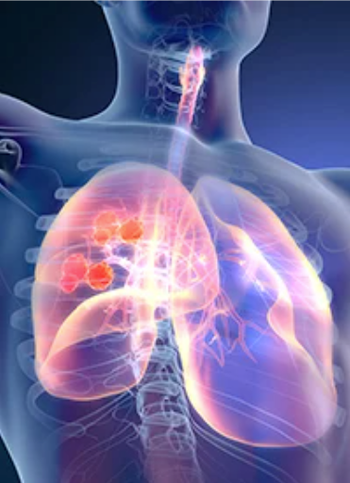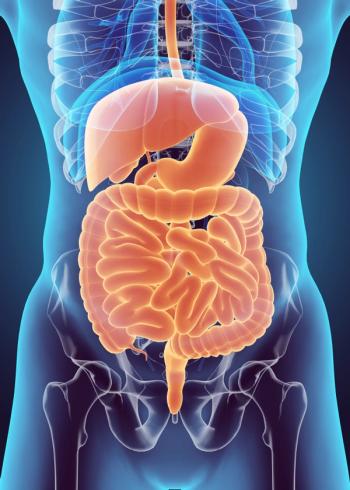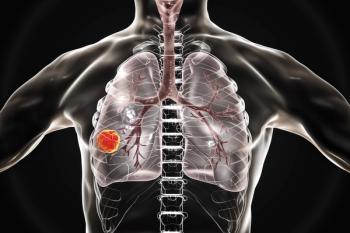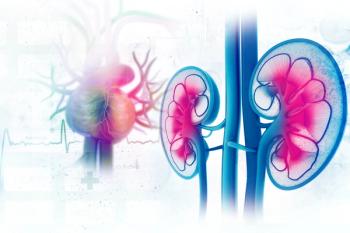
Patient with advanced renal cell carcinoma who were treated with nivolumab and ipilimumab experienced a long-term survival benefit that was superior to sunitinib.

Your AI-Trained Oncology Knowledge Connection!


Patient with advanced renal cell carcinoma who were treated with nivolumab and ipilimumab experienced a long-term survival benefit that was superior to sunitinib.

The toxicity profiles of PD-1 and PD-L1 inhibitors displayed unique characteristics when combines with other agents such as chemotherapy, targeted therapy, and immunotherapy.

According to results from the Blood First Assay Screening Trial, blood-based tumor mutational burden did not predict a benefit of atezolizumab over chemotherapy for patients with non-small cell lung cancer.

Pembrolizumab plus chemotherapy compared with the placebo plus chemotherapy demonstrated an improvement in overall survival and progression-free survival for patients with esophageal squamous cell carcinoma.

Tisotumab vedotin may now be used to treat patients with recurrent or metastatic cervical cancer after the FDA's decision to grant the agent an accelerated approval.

Investigators believe the use of biomarkers can determine the results of de-escalated neoadjuvant T-DM1 in HR-positive/HER2-positive early breast cancer.

Topline findings from the phase 2 KRYSTAL-1 study indicated that adagrasib may hold promise in patients with KRAS G12C–mutant non–small cell lung cancer.

Patients with stage II to IIIA non–small cell lung cancer experienced an improvement in disease-free survival and time to locoregional and distant relapse after being treated with adjuvant atezolizumab.

Ficlatuzumab, which received a fast track designation from the FDA, may provide benefit to patients with relapsed or recurrent head and neck cancer.

Treatment with sunitinib resulted in improved efficacy results in the FIRSTMAPPP trial for patients with malignant pheochromocytoma and paraganglioma.

Fredrik Schjesvold, MD, PhD, speaks about the FDA approval of melflufen in relapsed/refractory multiple myeloma and its next phase of development at the 2021 International Myeloma Workshop.

Results of a single-arm study indicate that patients with previously treated metastatic cervical cancer may derive benefit from treatment with balstilimab plus zalifrelimab.

Data from the Circulating Cell-Free Genome Atlas on Clinical limit of detection, or cLOD, may help investigators better detect multiple cancers at earlier stages.

Examination of tisotumab vedotin plus key standard-of-care therapeutics shows promise for the treatment of cervical cancer in the frontline setting and beyond.

Overall survival in patients with de novo metastatic castration-sensitive prostate cancer improves with addition of prednisone and abiraterone to androgen-deprivation therapy plus docetaxel.

Data presented at 2021 ESMO show that nivolumab plus chemotherapy improves survival outcomes in certain patients with frontline gastrointestinal cancers, but not nivolumab plus ipilimumab.

Certain patients with metastatic castration-resistant prostate cancer may have favorable outcomes after receiving nivolumab plus rucaparib.

Data from the KRYSTAL-1 trial show promise of adagrasib as monotherapy and in combination with other standard agents for colorectal cancer.

Durable objective responses coupled with an acceptable safety profile were reported for sabizabulin in patients with metastatic castration-resistant prostate cancer at 2021 ESMO.

Results of the phase 2 SAKK 08/16 trial indicate a benefit to switching to darolutamide maintenance following prior therapies for metastatic castration-resistant prostate cancer.

The combination of abiraterone acetate and prednisolone plus androgen deprivation therapy showed a statistically significant improvement in survival outcomes for patients with nonmetastatic high-risk prostate cancer.

Data from the phase 3 MONALEESA-2 trial demonstrate significant benefit of frontline ribociclib (Kisqali) added to letrozole for hormone receptor–positive, HER2-negative advanced breast cancer

Previously treated patients with HLA-A*02:01-positive metastatic uveal melanoma saw survival prediction improvements with ctDNA when compared to RECIST 1.1.

The antibody drug conjugate, datopotamab deruxtecan, was safe in heavily pretreated patients who don’t have many treatment options after treatment with tyrosine kinase inhibitors and platinum-based chemotherapy.
![Treatment [vic]-trastuzumab duocarmazine improved progression-free survival for patients with pretreated, metastatic HER2-positive breast cancer when compared with physician’s choice chemotherapy.](https://cdn.sanity.io/images/0vv8moc6/cancernetwork/c8069cc5312a160276910828df1d1258acba2058-4819x3072.jpg?w=350&fit=crop&auto=format)
Treatment [vic]-trastuzumab duocarmazine improved progression-free survival for patients with pretreated, metastatic HER2-positive breast cancer when compared with physician’s choice chemotherapy.

Atezolizumab plus cabozantinib showed significant activity for patients with high-risk metastatic castration-resistant prostate cancer.

Data from the phase 3 DESTINY-Breast03 trial show trastuzumab deruxtecan bests trastuzumab emtansine in patients with previously treated HER2-positive metastatic breast cancer.

Patients with cervical cancer receiving pembrolizumab plus chemotherapy with or without bevacizumab in the frontline setting had improvement in overall survival, potentially representing a new standard of care regimen.

The use of adjuvant pembrolizumab resulted in a recurrence-free survival benefit for patients with resected high-risk stage II melanoma.

Patients previously treated with PARP inhibitors showed an improvement in median progression-free survival when rechallenged with olaparib maintenance.